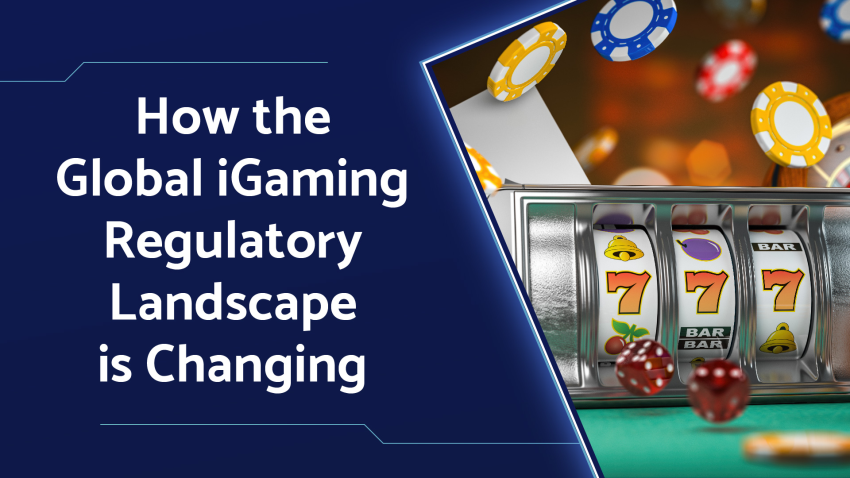The legal landscape of iGaming is rapidly evolving, significantly impacting how players engage with online gaming platforms. Understanding iGaming regulations is crucial as jurisdictions worldwide enforce differing online gambling laws that can create confusion for newcomers and seasoned players alike. With the rise of licensed online casinos, maintaining compliance with these laws not only safeguards operators but also enhances player protection during gaming sessions. As we delve into the legal requirements of 2025 iGaming trends, recognizing the importance of staying informed about compliance issues becomes paramount. This exploration will illuminate the intricate web of legal frameworks that shape the iGaming experience today.
The regulatory framework governing online gambling, often referred to as the iGaming ecosystem, encompasses a vast array of rules and guidelines that vary widely across regions. As the digital gaming environment matures, players must be aware of the diverse online gambling laws that dictate operational standards and compliance practices. Understanding these laws is essential for engaging with reputable gaming sites and ensuring a safe betting experience. Furthermore, as trends in the iGaming sector shift towards stricter regulations and licensing requirements, awareness of these changes is key to informed participation in the gaming market. In this discourse, we will analyze the challenges and considerations within this complex legal landscape.
Navigating the Legal Landscape of iGaming
Understanding the evolving legal landscape of iGaming is crucial for players as the industry adapts to new regulations imposed by various jurisdictions. The complexities of online gambling laws mean that, while some regions are liberalizing their approaches to online casinos and sports betting, others are tightening restrictions and increasing compliance requirements. As such, players must be proactive in familiarizing themselves with the legal requirements specific to their region, ensuring they engage only with licensed online casinos that adhere to robust compliance measures.
Additionally, the regional fragmentation highlighted in the 2025 iGaming Trends Report suggests that players can encounter varying standards of player protection and operational integrity depending on where they engage in online gambling. This makes it imperative for players to stay informed about the legal frameworks that govern their gaming activities, particularly as new laws emerge. Informed players not only enhance their own gaming experiences but also contribute to the overall safety and security of the iGaming industry by holding operators accountable.
The Importance of Compliance in the iGaming Sector
In the competitive world of iGaming, compliance is not simply a regulatory checkbox—it’s integral to building trust between operators and players. As the costs of licensing increase, operators are compelled to invest more in ensuring compliance with both local and international laws. For players, this translates to a higher level of assurance that they are playing in an environment that prioritizes their safety and security. Engaging with licensed operators who demonstrate strong commitment to compliance can mitigate risks associated with online gambling, such as fraud or the mishandling of funds.
Moreover, an operator’s investment in compliance and risk management frameworks can significantly enhance the overall gaming experience. As the Info-Tech Research Group suggests, investing in IT solutions ensures adherence to evolving laws that protect players. In an industry where regulatory changes are frequent, players should prioritize platforms that demonstrate transparency in their compliance efforts. Ultimately, when players choose licensed and compliant operators, they not only safeguard their gaming interests but also support a healthier and more sustainable gaming ecosystem.
Frequently Asked Questions
What are the key iGaming regulations that players should be aware of in 2025?
In 2025, players should be familiar with the increased licensing costs and the regional fragmentation of iGaming regulations, which differ from country to country. Understanding these regulations is crucial for compliance and to ensure a secure online gambling experience. Players should check local laws regarding age restrictions, types of games allowed, and operational standards that licensed online casinos must meet to protect player interests.
How do iGaming compliance and licensing affect online gambling laws for players?
iGaming compliance and licensing are essential to the legal landscape of online gambling. Increased licensing fees and stringent compliance measures in 2025 aim to enhance player safety and reduce fraud risks. Players are encouraged to engage only with licensed online casinos that demonstrate compliance with local laws. This ensures a safer gaming environment, protecting players from issues related to non-compliance and operational mismanagement.
| Key Aspect | Summary |
|---|---|
| Introduction | Understanding the complexities of iGaming regulations is essential for compliance and player safety. |
| Regional Fragmentation | Operators must adapt to varying regional laws and compliance requirements. |
| Licensing Costs | Dramatic increases in licensing fees are reshaping operational strategies and player experiences. |
| Compliance and Risk Management | Operators must strengthen compliance frameworks to mitigate risks for players, emphasizing transparency. |
| European Laws | Diverse regulatory approaches in Europe can impact age regulations and operational standards for players. |
| Operational Standards | New licenses require prior operational experience to enhance player protection and industry standards. |
Summary
The Legal Landscape of iGaming is increasingly intricate and necessitates that players remain informed about the evolving regulations that affect their gaming experiences. With the rise in licensing fees, fragmented regional laws, and new operational requirements set to safeguard player interests, it is more crucial than ever for individuals to educate themselves about these changes. By doing so, players can engage more confidently with regulated operators, ensuring compliance and a safe gaming environment. Furthermore, as new regulations emerge, staying up-to-date will not only enhance player safety but also enhance enjoyment in what is becoming a complex but rewarding industry. As such, advocating for informed engagement within the iGaming sector is not just a personal responsibility, but a necessity in navigating these uncharted waters.
